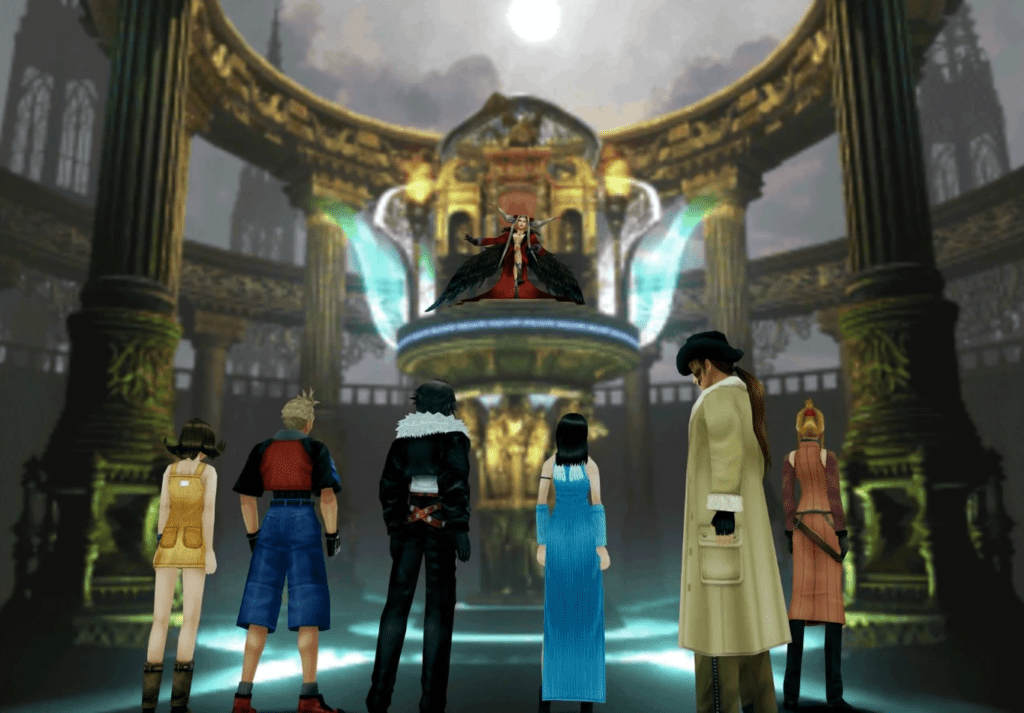Wasted On Wiki
Storyteller of the Archives, more commonly abbreviated to SotA or SOTA, is an unidentified internet personality who gained minor fame for their contributions to gaming and anime story synopsis writing and fan-fiction script writing. Their contributions have indirectly led to a number of unintentional conflicts with rival writers, and even games incorrectly leaked as “in-development” from careless speculation from fans.
SOTA’s earliest known works can be traced back to a number of Wikipedia anime series and game story synopses contributed back in 2015, initially under the name ‘Storyteller From The Archives’, before switching the name to ‘Storyteller Of The Archives’, presumably to take advantage of the time-saving ‘SotA’ acronym, which also conveniently doubles as the acronym of ‘State of the Art’. SOTA would later reveal that they have also written under other names prior to 2015.
Several of SOTA’s anime plot summaries have been removed from Wikipedia following changes in censorship guidelines on the platform, with SOTA opting to include sexual content descriptions where relevant to their respective stories. SOTA would later confirm their anti-censorship policy, claiming “Stories are there to be told, not hidden”.
SOTA’s more controversial works would include story summaries of popular hentai anime series with accompanying PC games, including the Bible Black and Discipline: Record of a Crusade series, which were later removed from Wikipedia. Conventional console games covered by SOTA include contributions and full story synopses of multiple games in the Elder Scrolls, Final Fantasy, BioShock, and Tomb Raider series, plus countless other individual titles.

Vanishing Act
Storyteller of the Archives would disappear from Wikipedia contributor lists entirely in 2017 without explanation. After often undesirable edits were made to several of SOTA’s entries, SOTA neglected to challenge the changes or respond to either genuinely beneficial edits or blatant attempts at vandalism, leading many to assume that SOTA had left the Wiki community permanently.
SOTA would reappear months later on Twitter, leading a Storyteller of the Archives works page, confirming their departure from Wikipedia after a series of “unwarranted attacks”.
“At the end of the day, I’m here to tell stories, and that’s all I’ve tried to do. If someone were to scribble notes in a novel, we’d consider them a vandal. If someone were to interrupt a lecturer, we’d consider them rude. This is precisely the problem with Wikipedia. It’s simply not the right place to share and preserve my works.”
“I’m not blind to how this works. I have no problem with collaborating with other writers; this is the nature of shared media, but having whole paragraphs changed without consent and entire works deleted without warning just doesn’t sit well with me.”
“There needs to be some level of consent involved. I could write a 1,000 word plot summary and come back the very next day to find someone has needlessly edited it. That’s the reasonable part. I could come back a week later and find the entire summary replaced by another, less detailed one. Then it gets silly. I could return a month later and find the entire page gone without explanation.”
“Things just got to me one day. I thought, ‘enough is enough’ and just quit. I don’t get paid a penny for Wiki contributions so I had nothing to lose. I’ll be looking into other ways to showcase my work moving forward.”
SOTA’s Twitter feed would fall silent in late 2018. A final update confirmed the Twitter account was closing due to a suspected security breach, however the exact details of this leak were not revealed and no evidence has been found of SOTA’s identity being potentially exposed.

Who Are You?
SOTA’s style of writing and Twitter activity would rouse speculation as to their identity. The earlier interest in hentai plus a comment stating “I’m not the bad guy here” would suggest that SOTA is male, though no solid evidence has ever been presented to confirm this.
SOTA occasionally writes in American English, though many believe this is either edited or a ‘red herring’ to disguise their identity, with the majority of SOTA posts being written in British English. Further regional dialects have been identified in a handful of works, including Australian English, while the liberal use of the word ‘wee’ as a substitute for ‘small’ could imply that SOTA is Scottish rather than English.
Twitter posts and retweets suggest that SOTA may be a member of the gaming media, possibly even a ghost writer. Several popular gaming media personalities have been followed and praised by SOTA, including Lisa Foiles and Felicia Day.

Final FAN-tasy VIII
Storyteller of the Archives would re-emerge sporadically in gaming forums throughout 2020, not long after the release of Final Fantasy VIII Remastered in September 2019. Now tackling fan-fiction, SOTA would announce a sequel script to Final Fantasy VIII, set approximately four years later, titled Final Fantasy VIII: Pandora Paradox, also known as Final Fantasy VIII: The After Years and Final Fantasy VIII-2 depending on the source.
The sequel is based on a famous fan theory that suggests the characters of Rinoa and Ultimecia are one and the same person. The script implies that Rinoa Heartilly, Squall Leonhart’s girlfriend, is the main protagonist this time, and has been spending less and less time with him after transferring to ‘Sanctuary’, Cid and Edea Kramer’s home for wayward sorceresses, where she learns to control her latent powers.
Despite Ultimecia’s previous interest in Rinoa as a host, Rinoa is considered a failure as a sorceress and cannot successfully manifest magic without ‘junctioning’ a Guardian Force, however doing so is now banned throughout the world due to the memory loss it triggers. Rinoa sets out to find a Guardian Force she is ‘compatible’ with which won’t feed on her memories, leading her to the deity Aion, and later Griever. Meanwhile, a lonely Squall and Quistis find comfort in each other.

What Happened To… Final Fantasy IX-2
Supposedly inspired by Jade King’s article for TheGamer, ‘Final Fantasy 9 Doesn’t Need A Remake, It Needs A Sequel’ published on May 15th, 2022, SOTA would begin work on an unofficial script for Final Fantasy IX-2, periodically leaking “official-looking” sections of the script online, which would cause rumours of a genuine sequel in development, though developer Square Enix would only confirm the existence of a remake.
The leaked sections of script are set a little over two years after the events of the first game, beginning at the wedding of Sir Fratley and Lady Freya. Like the first game, the story switches perspectives at regular intervals, with several key characters taking on protagonist roles. The world of Gaia is now entering a rapid industrial revolution following the discovery of steam engine technology, including the mass production of airships.
The Tantalus group, including Zidane, perform at the wedding, while also acting as guards for the royalty in attendance, including Queen Garnet. After the ceremony, the party, comprised of Zidane and the members of Tantalus, plus Garnet, Steiner and Eiko, attempt to chase down a mysterious green-haired woman who has attacked the ruins of Cleyra followed by the Black Mage Village, resulting in a mass evacuation of the Genomes, led by Mikoto, Vivi’s supposed son ‘Junior’, and even a reformed Kuja.

A New Odyssey
SOTA would appear regularly in Facebook gaming groups throughout 2024, announcing a completed script had been written for God of War 4, as opposed to the episodic style of previous game scripts. Several samples of the script were released to generate interest. SOTA would also suggest the complete script would be sold at auction, while future projects would be available to fund via Patreon. The script returns to the numeric titles of the original trilogy in order to continue the traditions of the earlier games.
Following commentary from SOTA, it was revealed that the script was created out of disappointment for the change of setting of the previous two games in the series, as there were still “too many loose ends to tie up in Greece”. The script serves as a final act of the Greek saga and paves the way for a new wave of gods by introducing the Roman pantheon. The game is based on the events of Virgil’s epic poem, the Aeneid.
The story begins shortly after God of War: Ragnarok. The spirit of Athena advises Kratos that he has unfinished business in Greece and should return immediately as he now has a “new destiny” which will guarantee him atonement for his past sins. Kratos makes the long journey south, eventually discovering that Greece is no longer the dark hellscape he left behind.
Kratos’ journey will take him from the coast of Thrace to the ruins of Troy, then on to Aphrodite’s temple in Cyprus, Atlantis, and the ruins of Olympus, before sailing west to Carthage, Sikelia (Sicily), the Underworld, and finally the future site of Rome. Kratos will ally with several other legendary characters who have key roles in the story, including Pygmalion, Queen Dido, Io, and the surviving Olympian and Cthonic gods.

An Unsolved Mystery
The true identity of Storyteller of the Archives still puzzles readers to this day. SOTA seems to enjoy the mystery and speculation, rarely responding to comments and questions from appearances in Facebook gaming groups, NeoGAF, GameSpot, and 4chan, as well as older surviving posts on Twitter (now ‘X’) and, of course, Wikipedia.
With fans gradually gaining an interest in SOTA’s works, questions would be asked where exactly their works could be purchased or funded, however SOTA’s responses have been few and far between, usually including the line “Something big is coming”. In 2025, SOTA would also announce new scripts in the works for original games which are not direct sequels of existing games, including a game adaptation of John Milton’s Paradise Lost.




